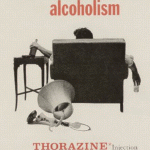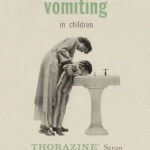
THE HUMAN BRAIN is astoundingly complex, according to a report on ScienceDaily, "Human Brains Share a Consistent Genetic Blueprint and Possess Enormous Biochemical Complexity". Indeed, the human mind is astoundingly complex in both construction and operation. Scientists at the Allen Institute for Brain Science reported in the latest issue of the journal Nature that human brains share a consistent genetic blueprint and possess enormous biochemical complexity. The findings stem from the first deep and large-scale analysis of the vast data set publicly available in the Allen Human Brain Atlas.
And while we all don't think alike, our minds are all pretty much the same:This dataset profiles 400 to 500 distinct brain areas per hemisphere using microarray technology and comprises more than 100 million gene expression measurements covering three individual human brains to date. Among other findings, these data show that 84% of all genes are expressed somewhere in the human brain and in patterns that are substantially similar from one brain to the next.
• 84% of all genes are expressed, or turned on, somewhere in the human brain.
• Many previously uncharacterized genes are turned on in specific brain regions and localize with known functional groups of genes, suggesting they play roles in particular brain functions.
But it's when brains malfunction, that is of concern. Psychoanalysis is a process of conjecture, when contending with human minds and their mysterious motivations, and as the West became urbanized, it appeared that more and more people were experiencing mental maladjustment, indeed, head problems.
Then Miltown, or Meprobamate was discovered in 1950, launched in 1955, the first blockbuster psychotropic drug. Right after, came Thorazine, or chlorpromazine, and the side-effects blossomed, as the "thorazine shuffle" became the gait of the afflicted.
And Big Pharma jumped in on this with both feet.
And while we all don't think alike, our minds are all pretty much the same:This dataset profiles 400 to 500 distinct brain areas per hemisphere using microarray technology and comprises more than 100 million gene expression measurements covering three individual human brains to date. Among other findings, these data show that 84% of all genes are expressed somewhere in the human brain and in patterns that are substantially similar from one brain to the next.
• 84% of all genes are expressed, or turned on, somewhere in the human brain.
• Many previously uncharacterized genes are turned on in specific brain regions and localize with known functional groups of genes, suggesting they play roles in particular brain functions.
But it's when brains malfunction, that is of concern. Psychoanalysis is a process of conjecture, when contending with human minds and their mysterious motivations, and as the West became urbanized, it appeared that more and more people were experiencing mental maladjustment, indeed, head problems.
Then Miltown, or Meprobamate was discovered in 1950, launched in 1955, the first blockbuster psychotropic drug. Right after, came Thorazine, or chlorpromazine, and the side-effects blossomed, as the "thorazine shuffle" became the gait of the afflicted.
And Big Pharma jumped in on this with both feet.
Decades later, the effectiveness of these psychotropics is being rightly questioned.
THE WILSON QUARTERLY is a delightful, thoughtful site, with a wonderful article by Tanya Marie Luhrmann, "Beyond the Brain", which looks at the failure of the pharmaceutical industry to deal with schizophrenia:
In the 1990s, scientists declared that schizophrenia and other psychiatric illnesses were pure brain disorders that would eventually yield to drugs. Now they are recognizing that social factors are among the causes, and must be part of the cure.
• • •
Psychoanalysis and even psychotherapy were said to be on their way out. Psychiatry would focus on real disease, and psychiatric researchers would pinpoint the biochemical causes of illness and neatly design drugs to target them.
• • •
Yet the outcome of two decades of serious psychiatric science is that schizophrenia now appears to be a complex outcome of many unrelated causes—the genes you inherit, but also whether your mother fell ill during her pregnancy, whether you got beaten up as a child or were stressed as an adolescent, even how much sun your skin has seen. It’s not just about the brain. It’s not just about genes.
But orthodox medical people are slow to change, and the prescription drug abuse and damage is becoming even more of a problem, according to Dr. Peter Breggin, whose web site, Psychiatric Drug Facts is a useful compendium of information and ideas, including his latest book, "Psychiatric Drug Withdrawal: A Guide for Prescribers, Therapists, Patients and their Families". So, why should you care? Because information and knowledge are your best defence against the horrors that could be prescribed for you or those you love.
THE WILSON QUARTERLY is a delightful, thoughtful site, with a wonderful article by Tanya Marie Luhrmann, "Beyond the Brain", which looks at the failure of the pharmaceutical industry to deal with schizophrenia:
In the 1990s, scientists declared that schizophrenia and other psychiatric illnesses were pure brain disorders that would eventually yield to drugs. Now they are recognizing that social factors are among the causes, and must be part of the cure.
• • •
Psychoanalysis and even psychotherapy were said to be on their way out. Psychiatry would focus on real disease, and psychiatric researchers would pinpoint the biochemical causes of illness and neatly design drugs to target them.
• • •
Yet the outcome of two decades of serious psychiatric science is that schizophrenia now appears to be a complex outcome of many unrelated causes—the genes you inherit, but also whether your mother fell ill during her pregnancy, whether you got beaten up as a child or were stressed as an adolescent, even how much sun your skin has seen. It’s not just about the brain. It’s not just about genes.
But orthodox medical people are slow to change, and the prescription drug abuse and damage is becoming even more of a problem, according to Dr. Peter Breggin, whose web site, Psychiatric Drug Facts is a useful compendium of information and ideas, including his latest book, "Psychiatric Drug Withdrawal: A Guide for Prescribers, Therapists, Patients and their Families". So, why should you care? Because information and knowledge are your best defence against the horrors that could be prescribed for you or those you love.



